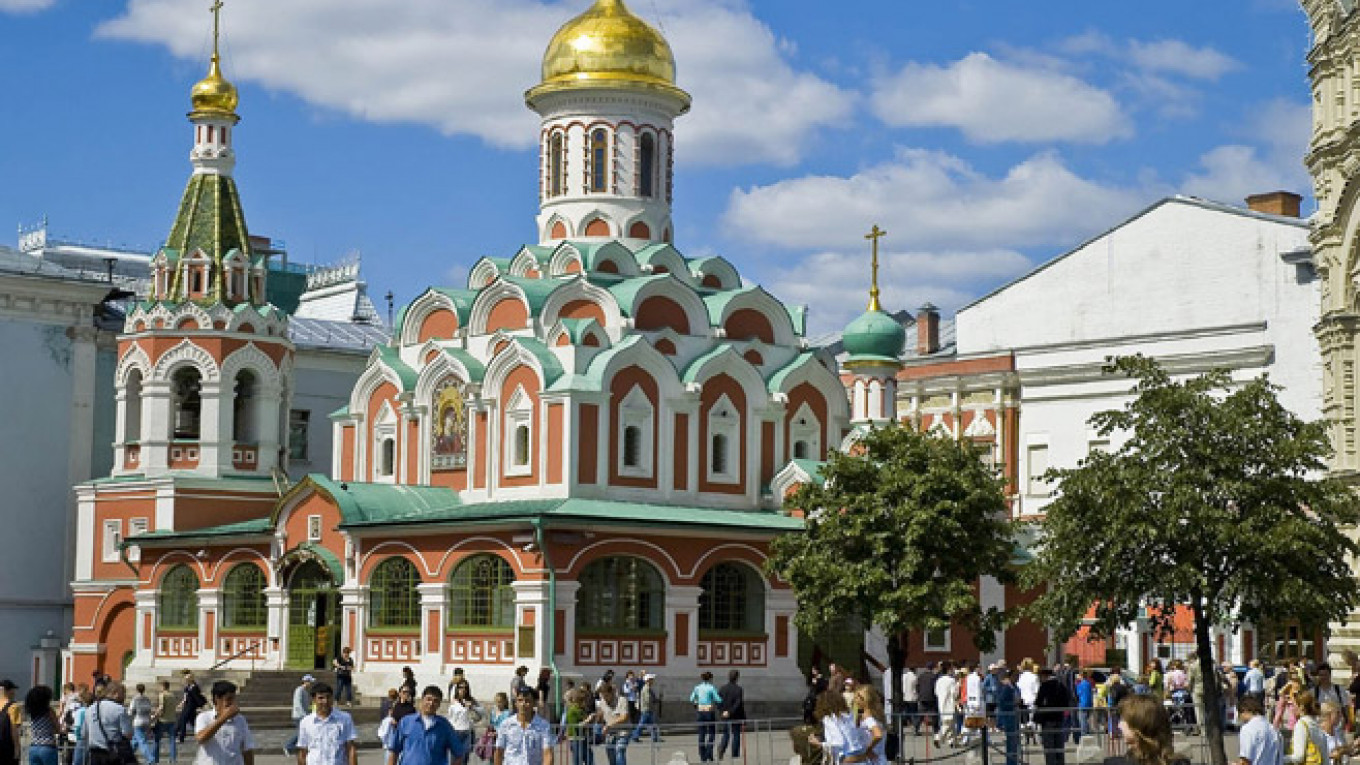Russian travel agencies say 40 to 60 percent fewer European and U.S. holiday makers came to Russia in the first half of this year than in the same period of 2013, while three times fewer Russian tourists went abroad, a trend they attribute to bad blood between Russia and the West over the Ukraine crisis, Kommersant reported Tuesday.
Ninety percent fewer Spaniards year-on-year came to Russia between January and June, while the number of Italians fell 60 percent and Germans 40 percent, the newspaper quoted Alexander Maklyarovsky, head of inbound tourism department at Russian tour agent KMP Group, as saying.
The overall flow of tourists into Russia could drop by another 60 percent in September, said Vladimir Kantorovich, first deputy head at the Russian Tour Agents Association.
Hotels are feeling the pinch: Those in Moscow were only about 59 percent full in the first half of the year, a 4 percent decrease, and in St. Petersburg bookings fell 3 percent to 53 percent, according to professional services company JLL.
Meanwhile, Russia's State Statistics Service, or Rosstat, has tweaked its methods for calculating the number of tourists entering and leaving Russia, allowing it to paint a much rosier picture of the tourism sector, the report said.
Rosstat figures indicate that the number of tourists visiting Russia first half of 2014 jumped by more than 10 times, from 1 million to 10.7 million and that the number of Russians going on overseas vacations rose 2.5 times, from 7.8 million to 20.1 million, in a country with a population of 140 million.
The statistics service's new tallying techniques lie behind the gaping disparity. Previously, Rosstat only counted people coming to Russia on tourist visas, but now all foreigners entering the country contribute to its tourism figures, with the exception of students and labor migrants, the newspaper said, citing unidentified officials.
As for outbound Russians, Rosstat now counts those going away on business or for medical treatment to inflate its figures.
The changes are in line with the government's tourism development strategy, which aims to raise the number of tourists visiting Russia to 40 million by 2020, the report said.
As for the service's picture of increased travel abroad, Russian tour agents may take issue. Travel operators have been going out of business at an alarming rate this summer as the number of holidayers falls. Labyrinth, one of Russia's biggest tourism firms, suspended its operations in August, blaming the decision on the falling value of the ruble, the negative political and economic situation, and a government recommendation to employees of the state's law and order apparatus not to travel abroad — all things either caused or worsened by Russia's spat with the West over Ukraine.
Neva, Russia's oldest tour agent, also went bankrupt this summer.
A Message from The Moscow Times:
Dear readers,
We are facing unprecedented challenges. Russia's Prosecutor General's Office has designated The Moscow Times as an "undesirable" organization, criminalizing our work and putting our staff at risk of prosecution. This follows our earlier unjust labeling as a "foreign agent."
These actions are direct attempts to silence independent journalism in Russia. The authorities claim our work "discredits the decisions of the Russian leadership." We see things differently: we strive to provide accurate, unbiased reporting on Russia.
We, the journalists of The Moscow Times, refuse to be silenced. But to continue our work, we need your help.
Your support, no matter how small, makes a world of difference. If you can, please support us monthly starting from just $2. It's quick to set up, and every contribution makes a significant impact.
By supporting The Moscow Times, you're defending open, independent journalism in the face of repression. Thank you for standing with us.
Remind me later.






